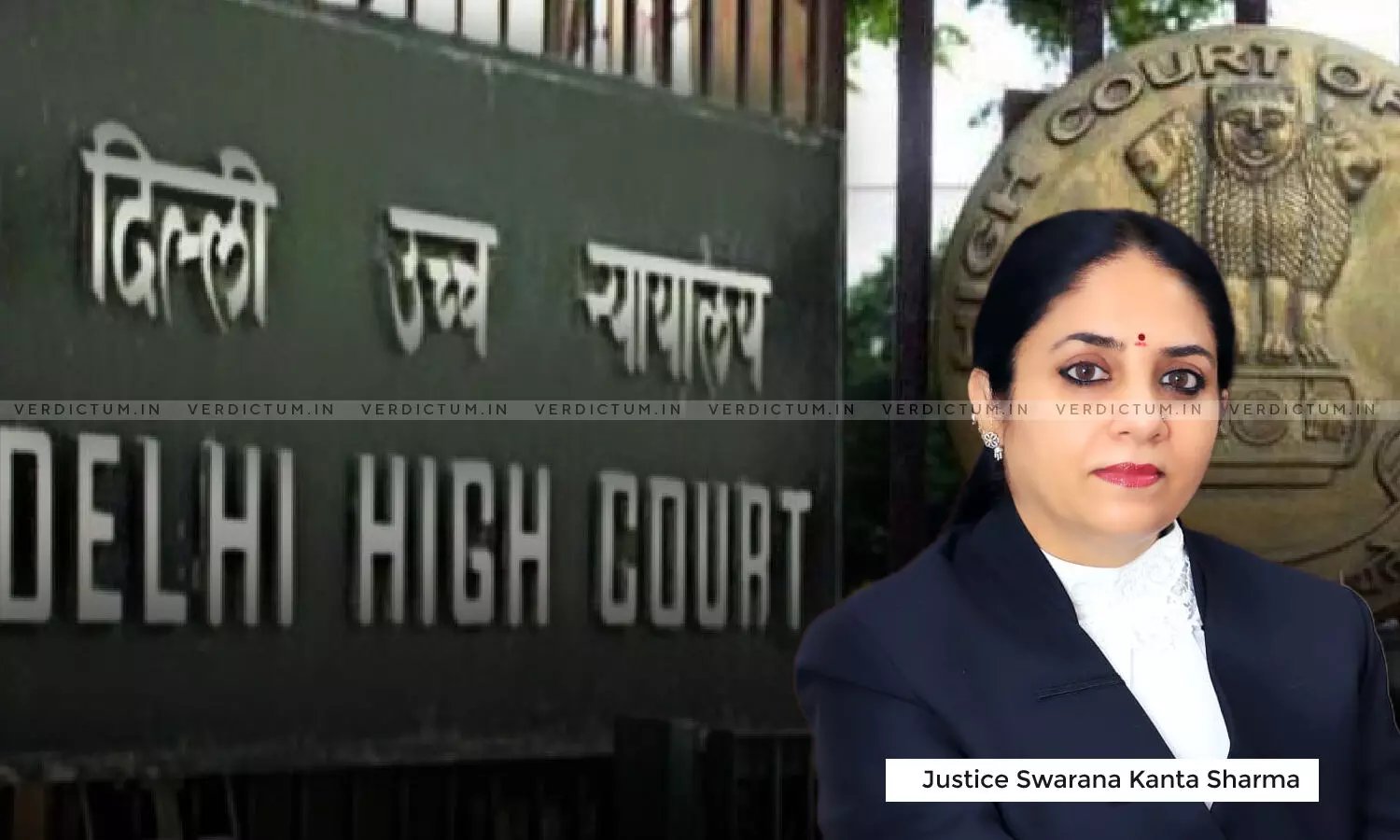
Ensuring Peace And Harmony Most Sacred Duty Not Only Of Courts But Also Citizens – Delhi HC While Refusing Anticipatory Bail
 |
|The Delhi High Court while refusing to grant anticipatory bail to an accused charged with initiating riots in Delhi's Jahangir Puri on April 16, 2022, has observed that ensuring peace and harmony in the country is the most sacred duty of not only the law enforcing agencies and the Courts but also of the citizens of the country.
Justice Swarana Kanta Sharma in this context observed –
"Ensuring peace and harmony in the country and communities is the most sacred duty of not only the law enforcing agencies and the Courts but duty has been caste on every citizen of this country that they should maintain peace and harmony and ensure that their acts do not instigate and promote communal hatred or ill-will."
Counsel B.S.Chaudhary appeared for the Petitioner while APP Manoj Pant appeared for the State before the High Court.
The Court also observed that all citizens have the fundamental right to personal liberty but the same is subject to duties that are cast upon them.
"The conduct of the applicant/accused was allegedly an attempt to disturb the communal harmony of the area by trying to create a rift between two communities. The Court has to note that these are grave allegations of acts which taking advantage of fact of eve of festival of one community deeply scars the communal fabric of the society. An individual who is not cooperating with the investigation agencies to ascertain whether he partook in such nefarious activities, in my opinion, is not entitled to anticipatory bail or claim infringement of his fundamental right guaranteed under Article 21 of the Indian Constitution," the Court held.
The Court also noted that it is a strange paradox that the applicant claims he is area incharge of the "Aman Committee", but has not joined investigation of offences which have defeated the very purpose and aim of such committee.
The Appellant had sought indulgence of the Court and contended that his personal liberty guaranteed by the Indian Constitution under Article 21 and cannot be lightly interfered with.
Dealing with such a contention of the Appellant, the Bench held, "No doubt, the fundamental right of personal liberty has been granted to every citizen of this country. However, the same is subject to duties which are in turn cast upon every citizen. In the present case, the applicant has evaded arrest and proceedings under section 82 Cr.P.C. have been concluded against him. The proceedings under section 83 Cr.P.C. are pending. The applicant has not co-operated with the investigating agency. Though on one hand, it is argued that the applicant was in charge of ensuring peace in the locality, on the other hand, his conduct of not co-operating with the investigating agency or even joining investigation despite the fact that suspicious material has been found on the terrace of his house during the Jahangir Puri riots points to the contrary."
Thus the Court considered the conduct of the Appellant and the material on record against him including the statement of the eye witness as well as the fact of the custodial interrogation would be required to unearth the real reason behind the riots and observed that anticipatory bail could not be granted to the Appellant.
"In view of the above facts and circumstances of the case, I am of the considered view that no ground is made out for exercising discretion of grant of anticipatory bail to the accused/applicant," the Bench held.
Accordingly, the Court dismissed the application moved on behalf of the accused/applicant and disposed of the Petition.
Cause Title - Sheikh Israfil v. State (NCT) of Delhi
Click here to read/download the Order